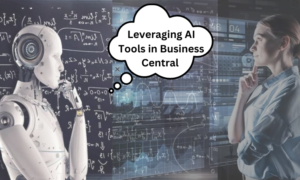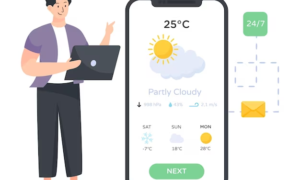
In the age of rapid technological advancement, 5G software is emerging as a groundbreaking force that promises to transform how industries operate. With its unparalleled speed, lower latency, and enhanced connectivity, 5G technology is set to revolutionize sectors ranging from healthcare to manufacturing, and everything in between. Understanding how 5G software is reshaping these industries is crucial for businesses looking to stay competitive in an increasingly digital landscape.
If you’re eager to dive deeper into the world of 5G technology and its impact, you can click this link here now to explore detailed insights.
What is 5G Software?
5G software refers to the suite of applications, platforms, and tools designed to leverage the capabilities of the fifth generation of mobile networks. Unlike its predecessor, 4G, which primarily focused on faster internet speeds, 5G is engineered to support a wider range of devices and applications. This includes the Internet of Things (IoT), autonomous vehicles, augmented reality (AR), and smart cities, all of which require fast and reliable communication.
5G networks offer significant improvements over earlier technologies, including:
Higher Data Speeds: With speeds reaching up to 10 Gbps, 5G enables instantaneous data transfers, which can enhance user experiences and operational efficiencies.
Lower Latency: 5G technology reduces latency to as low as one millisecond, allowing real-time communication and response.
Increased Connectivity: 5G networks can support millions of devices per square kilometer, facilitating the growth of IoT and smart devices.
To find out more about how 5G software is being integrated across different sectors, keep reading.
How 5G Software is Revolutionizing Various Industries
Healthcare
In the healthcare sector, 5G software is paving the way for remote patient monitoring, telemedicine, and enhanced surgical procedures. With the ability to transmit large amounts of data quickly, healthcare providers can share medical imaging and patient information in real-time, improving diagnosis and treatment outcomes.
For instance, surgeons can perform operations remotely using robotic systems powered by 5G, allowing them to operate on patients anywhere in the world. This is particularly beneficial in emergency situations where specialists are not readily available.
Manufacturing
The manufacturing industry stands to gain immensely from 5G software, which enables smart factories through IoT integration. With 5G, machines can communicate with each other in real-time, optimizing production lines and reducing downtime.
Imagine a factory floor where equipment autonomously adjusts based on real-time data analytics, improving efficiency and lowering operational costs. Predictive maintenance becomes a reality, as sensors connected through 5G can alert operators to potential equipment failures before they occur.
Transportation and Logistics
5G is set to revolutionize the transportation and logistics sectors by enabling smart logistics systems. Real-time tracking of shipments, vehicles, and cargo enhances supply chain transparency and efficiency.
Additionally, the emergence of autonomous vehicles relies heavily on 5G technology. These vehicles require instant communication with their surroundings to operate safely and efficiently. For example, they can receive traffic updates and coordinate with other vehicles to avoid accidents and reduce congestion.
Entertainment and Media
In the entertainment industry, 5G software is redefining content consumption through enhanced streaming experiences and immersive technologies. With faster download speeds, users can stream high-definition content without buffering, making platforms like Netflix and YouTube more accessible.
Furthermore, 5G opens up possibilities for augmented reality (AR) and virtual reality (VR) experiences. For instance, gaming companies are exploring AR games that require real-time interaction with the physical world, offering users a unique and immersive experience.
Smart Cities
As urban populations grow, the concept of smart cities becomes increasingly vital. 5G software plays a crucial role in enabling smart city initiatives, such as connected infrastructure, smart transportation systems, and efficient energy management.
With 5G, cities can implement smart traffic lights that adjust based on real-time traffic conditions, reducing congestion and improving air quality. Furthermore, smart meters can provide real-time energy usage data, allowing residents to optimize their consumption.
Challenges in Implementing 5G Software
While the benefits of 5G software are clear, its implementation is not without challenges. Some of the key hurdles include:
Infrastructure Costs: Building the necessary infrastructure for 5G requires significant investment, which can be a barrier for many companies.
Regulatory Issues: Governments must create policies that support the rollout of 5G technology, which can be a slow process.
Security Concerns: With increased connectivity comes the need for heightened cybersecurity measures. Protecting sensitive data transmitted over 5G networks is crucial.
Understanding these challenges can help businesses strategize effectively for a smoother transition to 5G technology.
The Future of 5G Software
Looking ahead, the future of 5G software is bright. As more industries recognize the potential of this technology, investments in 5G infrastructure and applications will likely accelerate. Innovations in areas such as edge computing will complement 5G, providing even faster data processing and response times.
Moreover, the rollout of 6G technology is already in the discussion phase, promising to further enhance communication capabilities. As we transition into this new era of connectivity, businesses must adapt and innovate to leverage the full potential of 5G and beyond.
Conclusion
5G software is not just a technological advancement; it is a transformative force that is revolutionizing industries worldwide. From healthcare to smart cities, the applications of 5G are vast and impactful. As businesses adapt to this new landscape, the opportunities for growth and innovation are limitless.
If you’re looking to stay ahead in this rapidly changing environment, understanding and embracing 5G technology is essential.





